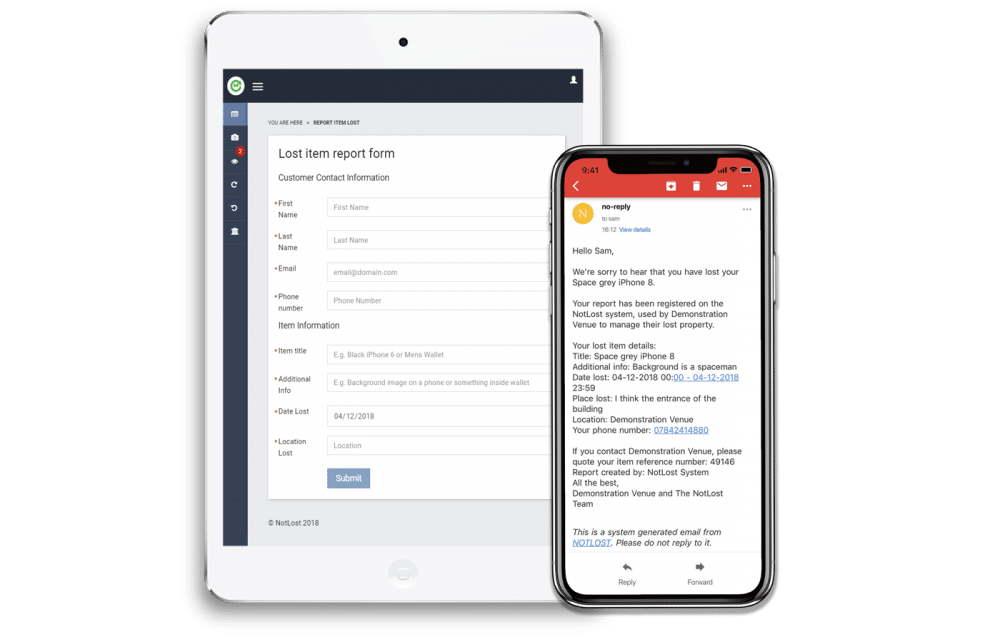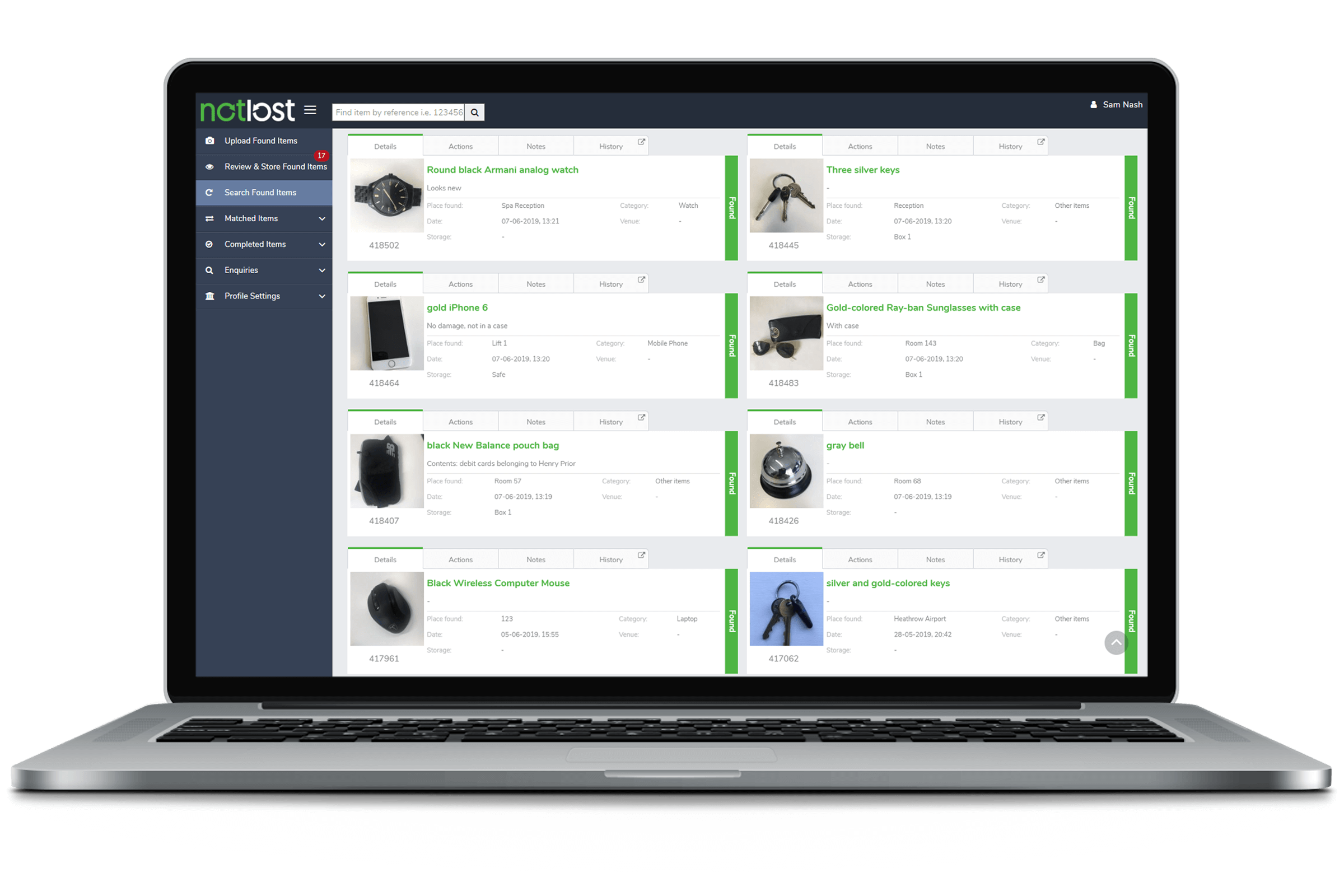UCL is the first university in the UK to use ground-breaking technology to modernise their lost property process, making it easier for students and staff to be reunited with their lost belongings
University College London (UCL) was founded in 1826 and is home to more than 42,000 students and 13,000 staff members. It is currently ranked 10th in the QS World University Rankings (2019) and its campus is spread across 34 buildings all over London. It’s also considered a global university, with students coming from over 150 countries to study here. So, how does lost property come into this?
Why did UCL need help with lost property?
UCL staff faced a significant challenge with their lost property process. The security team were overwhelmed with managing large volumes of lost property and affiliated enquiries each week. Plus, a paper-based system, with various forms and spreadsheets, was considered lengthy and ‘painful’. As such, the team reported it took up to 5 minutes to register an item and up to 12 minutes to handle enquiries, all for just one item.
Moreover, not only was it causing a headache for staff, it was also having a detrimental effect on student satisfaction. With no process for registering lost item reports, students were forced to repeatedly call in or travel to the lost property office in person. Furthermore, the student could be there for almost half an hour at a time: a great inconvenience to their scheduled day of lectures.
“A big issue for students was the lack of communication. The process was extremely painful and time consuming.”
Security Receptionist | UCL
The NotLost solution
UCL needed a modern solution to their lost property woes. Therefore, the NotLost platform was deployed across the university campus. The hassle of inputting multiple data points was removed with NotLost’s image recognition software. Staff take a photo of the item and the platform does the rest, creating a fully detailed report.
“The system is helping us return more items to students, faster. The ability for them to report items lost online has been a hugely beneficial feature.”
Security Projects Manager | UCL
How does NotLost work?
When handling enquiries, staff search across the network in real-time using keywords, images and dates, enabling them to respond promptly. Also, they can also log lost item reports which can be compared with found items at the click of a button.


The lost report form is available online 24/7 too to give students a modern and mobile method of making enquiries and to reduce the number of repeat visits to the lost property office.
Here’s the lost report form!
What are the results?
As a result, NotLost reduced the time spent handling lost property by 77%. Additionally, the time taken to log an item was cut in half, whilst handling an enquiry now takes 30 seconds. This was a huge decrease from 11 minutes!
As well as this, the student feedback is very positive, with staff reporting “it’s the quickest service they’ve ever had with lost property!”
%
reduced time spent on lost property
average enquiry time
“The NotLost system is very customer friendly and has generated very positive reviews from both my customers and staff.”
Head of Security | UCL
We are thrilled to be in partnership with such a prestigious and forward-thinking university. UCL has transformed its lost and found process with game-changing software and smart cloud-based tech. This makes the process quick and painless in comparison to the antiquated system of yesterday. What’s more, they have boosted student satisfaction, allowing students to get on with their studies without the worry of lost belongings and wasting time.
Find out more about NotLost’s lost property solution
Are you a staff member that handles lost property at a university of place of higher education? Do you think NotLost could be right for you? Please feel free to get in touch, we’d love to hear from you!
To find out more about NotLost, check out our About Us section, as well as our Twitter or LinkedIn. Or, explore our other case studies from different industries to get a real feel to how we work.
